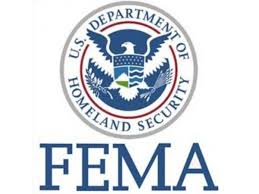 AUSTIN, Texas — When Hurricane Harvey forced tens of thousands of people from their homes, it suddenly increased Texans’ need for temporary housing. It also sent a signal to scam artists that families and individuals in Texas may be vulnerable to rental fraud.
AUSTIN, Texas — When Hurricane Harvey forced tens of thousands of people from their homes, it suddenly increased Texans’ need for temporary housing. It also sent a signal to scam artists that families and individuals in Texas may be vulnerable to rental fraud.
If you’re paying rent to FEMA for a manufactured housing unit or a direct lease apartment:
- Remember to ask to see a FEMA or GLO ID.Every FEMA or GLO representative will carry a photo ID badge issued by that agency. Clothing with a FEMA or GLO logo is not proof of employment.
- Know that no one from FEMA or the GLO will ask you for money. If someone claiming to work for FEMA or the GLO visits your home and asks for money, call your local law enforcement agency and FEMA at 800-621-3362 or TTY 800-462-7585.
- Do not give out personal information over the phone.If you receive a phone call from someone claiming to work for FEMA or the GLO, do not provide any personal information. If they request information other than your FEMA registration number, hang up and call the agency at a phone number you know is genuine.
Or if you’re moving out of FEMA housing and trying to rent a home or apartment, protect against fraud by following these steps:
- Search the internet for the information in the listing.If you find the same rental details with different contact information, you should be concerned. Some scammers simply copy real rental listings and change the contact information.
- Never wire money.There’s never a good reason to require money be sent by wire, and once you send it, there is no way to get it back.
- Meet the landlord. Scammers often say they’re out of the country but a lawyer, agent or other person will deliver the keys on their behalf. Some will even mail you fake keys. If you can’t meet the landlord in person, keep your guard up.
- Look for detailed ads.Is the rental listing vague? Does it leave out important facts or not quite make sense? Maybe the advertiser has never been there.
- Beware of the watermark.If the listing’s photo has a watermark, it may mean the person who posted the ad doesn’t have the original photo. They may have simply pulled it off a website.
- Don’t pay before signing a lease.Scammers often ask for a security deposit or first month’s rent before you’ve signed a lease. Until you’re the legal tenant, pay only an application fee.
- Check out the home first.If you can’t visit the home yourself, ask someone you trust to visit and confirm it is for rent and the advertisement was accurate.
- Expect to provide background information, sign a lease and pay fair rent.If something seems too good to be true, it probably is. Any property with very low rent, no lease or no credit check requirement may be a scam.
- Report your concerns:If you suspect a rental scam, please report it to your local law enforcement agency and contact the Federal Trade Commission at 877-382-4357 (877-FTC-HELP) or ftccomplaintassistant.gov. Please also inform FEMA by calling 800-621-3362 or TTY 800-462-7585, and the Texas Office of the Attorney General by calling 800-621-0508, emailing consumeremergency@oag.texas.gov or visiting www.texasattorneygeneral.gov. If the suspicious listing appeared on a website or in a publication, please also notify that source of information.
For additional information on Hurricane Harvey and Texas recovery, visit the Hurricane Harvey disaster web page at www.fema.gov/disaster/4332, Facebook at www.facebook.com/FEMAHarvey, the FEMA Region 6 Twitter account at www.twitter.com/FEMARegion6 or the Texas Division of Emergency Management website at www.dps.texas.gov/dem.

